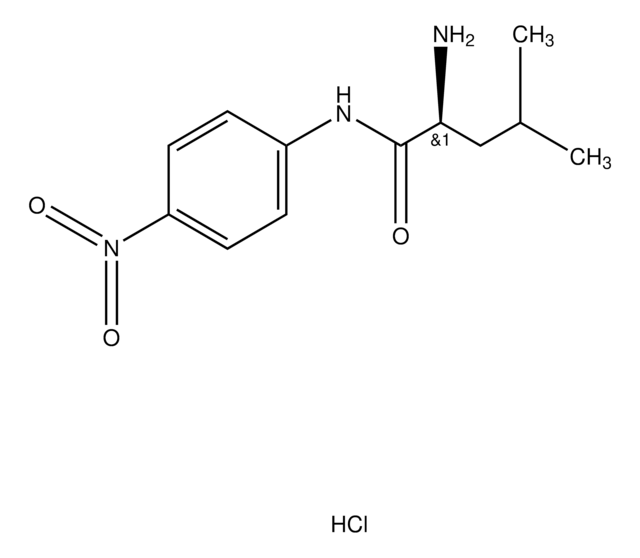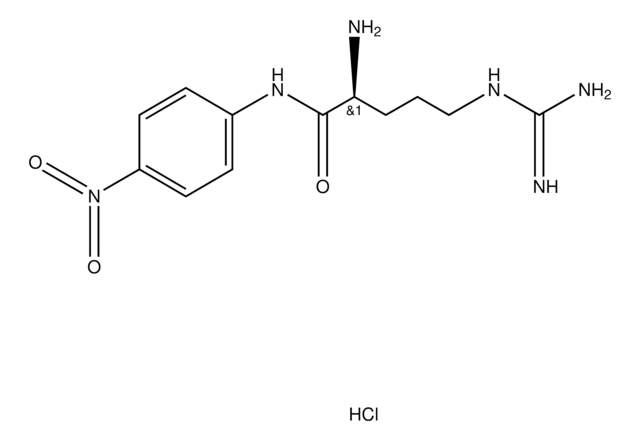P5267
L-Proline p-nitroanilide trifluoroacetate salt
≥99% (TLC), suitable for ligand binding assays
Sinónimos:
N-(4-Nitrophenyl)pyrrolidine-2-carboxamide, P-pNA, Pro-pNA
About This Item
Productos recomendados
Nombre del producto
L-Proline p-nitroanilide trifluoroacetate salt, prolyl aminopeptidase substrate
Quality Level
assay
≥99% (TLC)
form
powder
technique(s)
ligand binding assay: suitable
color
white to yellow
storage temp.
2-8°C
SMILES string
OC(=O)C(F)(F)F.[O-][N+](=O)c1ccc(NC(=O)[C@@H]2CCCN2)cc1
InChI
1S/C11H13N3O3.C2HF3O2/c15-11(10-2-1-7-12-10)13-8-3-5-9(6-4-8)14(16)17;3-2(4,5)1(6)7/h3-6,10,12H,1-2,7H2,(H,13,15);(H,6,7)/t10-;/m0./s1
InChI key
KYRVEVYREUUAKH-PPHPATTJSA-N
Categorías relacionadas
General description
Application
Storage Class
11 - Combustible Solids
wgk_germany
WGK 3
flash_point_f
Not applicable
flash_point_c
Not applicable
ppe
Eyeshields, Gloves, type N95 (US)
Elija entre una de las versiones más recientes:
Certificados de análisis (COA)
¿No ve la versión correcta?
Si necesita una versión concreta, puede buscar un certificado específico por el número de lote.
¿Ya tiene este producto?
Encuentre la documentación para los productos que ha comprado recientemente en la Biblioteca de documentos.
Los clientes también vieron
Nuestro equipo de científicos tiene experiencia en todas las áreas de investigación: Ciencias de la vida, Ciencia de los materiales, Síntesis química, Cromatografía, Analítica y muchas otras.
Póngase en contacto con el Servicio técnico














